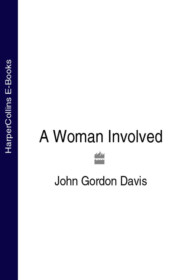По всем вопросам обращайтесь на: info@litportal.ru
(©) 2003-2024.
✖
Seize the Reckless Wind
Автор
Год написания книги
2018
Настройки чтения
Размер шрифта
Высота строк
Поля
‘We’ve tried to win their hearts and minds for Chrissake! Schools and hospitals and agricultural services and diptanks – who paid for all that?’
‘But we didn’t give them Partnership!’
‘Partnership?’ Max shouted. ‘We gave them Partnership and Britain sold us down the river for thirty pieces of silver! We’ve still got Partnership here – the blacks have got fifteen seats in Parliament out of a total of sixty-five!’
Mahoney shouted, ‘Hearts-and-minds Partnership, Max! The educated ones can vote but do we pay the uneducated ones a decent wage, the factory workers and farmboys who’re the basis of the economy? Do we make the black man who’s got a tie and jacket and a few quid in his pocket and wants to take his girlfriend on the town? Do we make him feel like a Rhodesian? Do we hell! Do the black kids at school feel the sky’s the limit if they work hard? And do we make the poor bloody tribesman feel like a Rhodesian, that we’re doing everything to improve his lot?’
‘Oh Jesus!’ Max shouted. ‘How can a handful of whites do more? We do ten times more than the rest of Africa where their own black governments cannot even feed their people! Oh Jesus, somebody stop me from braining this bastard!’
‘I’m going to a better land, a better land by far,’ Lovelock’s mouth bellowed silently.
When you love somebody and she doesn’t love you anymore …
Mahoney tried to thrust Shelagh out of his mind as he drove into Salisbury from the airport, and he was almost successful because he was still angry from his shouting-match with Max, and he had had six weeks in the bush to get used to the idea, and few things unclutter a man’s mind so well as the constant prospect of sudden death: but when he saw the familiar outskirts, he was coming home home home, and every street shouted Shelagh at him; and, when he stopped at wide Jamieson Avenue, all he wanted to do was keep going, across the big intersection into the suburbs beyond, just swing his car under the jacaranda trees with a blast on the horn and go running up the steps and see her coming running down into his arms, a smile all over her handsome face, everything forgiven and forgotten.
But he crunched his heart and turned right, into central Salisbury.
The city rose up against the clear sky, the new buildings and the old Victorians, the streets wide enough to turn a wagon drawn by sixteen oxen, and all so clean. It was home time and the streets were busy, people hurrying back to their homes and clubs and pubs and cocktail parties. Many were carrying guns. There was the big old High Court where he earned his living, the prime minister’s office opposite, the Appeal Court beyond, Parliament and Cecil Square with the bank that kept his money – it was his hometown, and he loved it, and, oh God no, he did not want to give it away.
He parked outside Bude House, left his kit-bag but took his rifle. He took the lift to the seventh floor, to Advocates’ Chambers. The clerk’s back was turned; he hurried down the corridor, past the row of chambers, into his own.
His desk held a stack of court briefs, tied with red tape. He propped his rifle against the wall and started flicking through briefs.
‘I saw you dodging past me. Welcome back.’
He turned. It was the clerk. ‘Hello, Dolores,’ he smiled. ‘I’m in a hurry.’
‘Is Pomeroy all right?’ Pomeroy was her ex-husband.
‘Fine. I flew back with him.’
She relaxed, and turned to business.
‘Well, unhurry yourself, you’ve got lots of work there, first one Monday.’
He sighed. ‘But I’m not going to wake up till Monday! What is it?’ He scratched through the briefs.
‘Company Law,’ Dolores said.
‘But I’m no good at Company Law and I’m going to sleep till Monday!’
‘It’s a fat fee.’
‘What good is money I can’t take out of the country?’
Dolores leant against the door and smiled wearily. ‘Here we go again. Where to this time?’
‘Australia.’
She shook her head, then ambled into the room. ‘But only after you’ve run for parliament, huh?’ She sighed and sat down on the other side of the desk, and crossed her plump, sexy legs.
He was flicking through the briefs. ‘That’s right.’
She looked at him. ‘You’ll be a voice in the wilderness.’
‘I’ll at least do my duty. And make a hell of a noise while I lose.’
‘So we should just give up everything we’ve built? Just hand it to savages on a platter?’
‘There’s a middle course. And if we don’t take it, it’ll be our heads on that platter.’
She sighed bitterly. ‘How goes the war? Are we really losing?’
‘We’re thrashing them. But we can’t keep it up forever.’ He put down the briefs and crossed his chambers and closed his door. He sat down heavily. He dragged his hands down his face. ‘Dolores, we’re going to lose the war, this way. Not this year, not next, but soon. By sheer weight of numbers. And the rest of the world is against us, the whole United Nations.’
‘The United Nations,’ Dolores said scornfully – ‘that Tom and Jerry Show.’
‘Indeed,’ Mahoney sighed. ‘But that’s where the economic sanctions come from. We’re outlaws, Dolores. And we cannot win unless we also win the hearts and minds of our own black people.’ He spread his hands wearily. ‘The answer is obvious. We’ve got to make a deal with our own moderate blacks – bring them into government. Form a coalition with them, and unite the people, black and white. Have a wartime coalition, with black co-ministers in the cabinet, and meanwhile write a constitution that guarantees One-Man-One-Vote within the next five years.’ He spread his hands. ‘Then we can turn to the world and say, we are truly multi-racial, so stop your sanctions now! And then we can get on with winning this war against the communists. As a united people.’ He looked at her wearily. ‘That’s the only way, Dolores.’
She said bitterly: ‘What you’re saying is we must fight the black man’s battle for him, so that within five years he can rule us with his usual incompetence.’
Mahoney cried softly, ‘For God’s sake, either way you slice it, it’s a black man’s war we’re fighting. Because if we carry on this way we’re going to lose and we’re going to have the terrorists marching triumphant into town and ruling all of us, black and white, butchering all opposition. We must act now, while we’ve still got the upper hand and can bargain to get the best terms for ourselves under the new constitution. Next year will be too late.’
She was looking at him grimly. He smacked the pile of court-briefs. ‘I’ll do these cases, but don’t accept any new work for me. I’m starting my brief political career.’
She sighed deeply and said, ‘You and your sense of duty – I hope it makes you learn some Company Law before Monday.’ She stood up wearily. ‘Come on, I’ll buy you a beer.’
He shook his head. ‘I’ve got to work, Dolores. And sleep.’
She looked at him. ‘It’s Shelagh, isn’t it? You want to wonder who’s kissing her now.’ He smiled wanly. ‘She’s just not worth it, Joe! Heavens, snap out of it, you could have just about any woman you wanted.’ She glared, then tried to make a joke of it. ‘Including me. Pomeroy says I should have a fling with you, get your mind off Shelagh.’
He smiled. ‘It’s a pretty thought.’ He added, ‘Are you going to the party?’
‘Hell no, it’s Vulgar Olga’s turn tonight.’
‘Why do you put up with him?’ Mahoney grinned.
‘Just because I divorced him doesn’t mean I’ve got to stop sleeping with him, does it? One may as well sleep with one’s friends …’
But he did not set to work. He went down the corridor to the library, found Maasdorp on Company Law, slung it in his robes bag, picked up his rifle and left. He started his car, then sat there, wondering where the hell to go. He did not want to go to Pomeroy’s house and swim bare-assed and hear how he couldn’t get spare parts for his aeroplanes; he did not want to go to Meikles and see the one-legged soldiers drinking, nor to any bars and feel the frantic atmosphere around the guys going into the bush; nor to the Quill Bar and listen to the journalists talking about how we’re losing the war; nor the country club and listen to the businessmen crying about sanctions. The only place he wanted to go was Shelagh’s apartment.
But he did not. He drove through the gracious suburbs with the swimming pools and tennis courts, on to the Umwinzidale Road. The sun was going down, the sky was riotously red. He drove for eleven miles, then turned in the gateway of his farm; he drove over the hill. And there was his house. He stopped at the high security fence, unlocked the gate, drove on. He parked under the frangipani tree, and listened. He heard it, the distant, ululating song coming from his labour compound. It was a reassuring sound, as old as Africa, and he loved it.
It was a simple Rhodesian house that he’d built before he had much money. A row of big rooms connected by a passage, a long red-cement verandah in front, the pillars covered with climbing roses, then thatch over rough-hewn beams. It was comfortably furnished with a miscellany which he had accumulated from departing Rhodesians. He went into his bedroom, slung down his bag and rifle. The room was stuffy but clean; he looked at the big double bed, and it shouted Shelagh at him.
He turned, went to the kitchen, got a beer. He was not ready for work yet. He opened the back door, and stepped out into the dusk.
It was beautiful, as only Africa can be beautiful. The smell and sounds of Africa. The lawns and gardens were surrounded by orchards. He had planted a eucalpytus forest and beyond were sties in which a hundred sows could breed two thousand piglets a year. Stables, chicken runs. He had nearly a thousand acres of grazing and arable land, plenty of water from bore-holes. It was a model farm. He did not make much profit, but what else had he been able to do with his money, except buy more land, start more projects? Beyond his boundaries was African Purchase Area, where black farmers scratched a living. Once upon a time he had cherished the notion that he could help them, by being an example, but that had not worked out. The wide boys from the towns had sabotaged that, burnt his house, killed his prize bull, and Samson – good old Samson, who had been with him on Operation Noah – had hanged for it. It was a model farm, but who would want to buy it now? And what good would the money do him? When he emigrated he could only take a thousand dollars.











